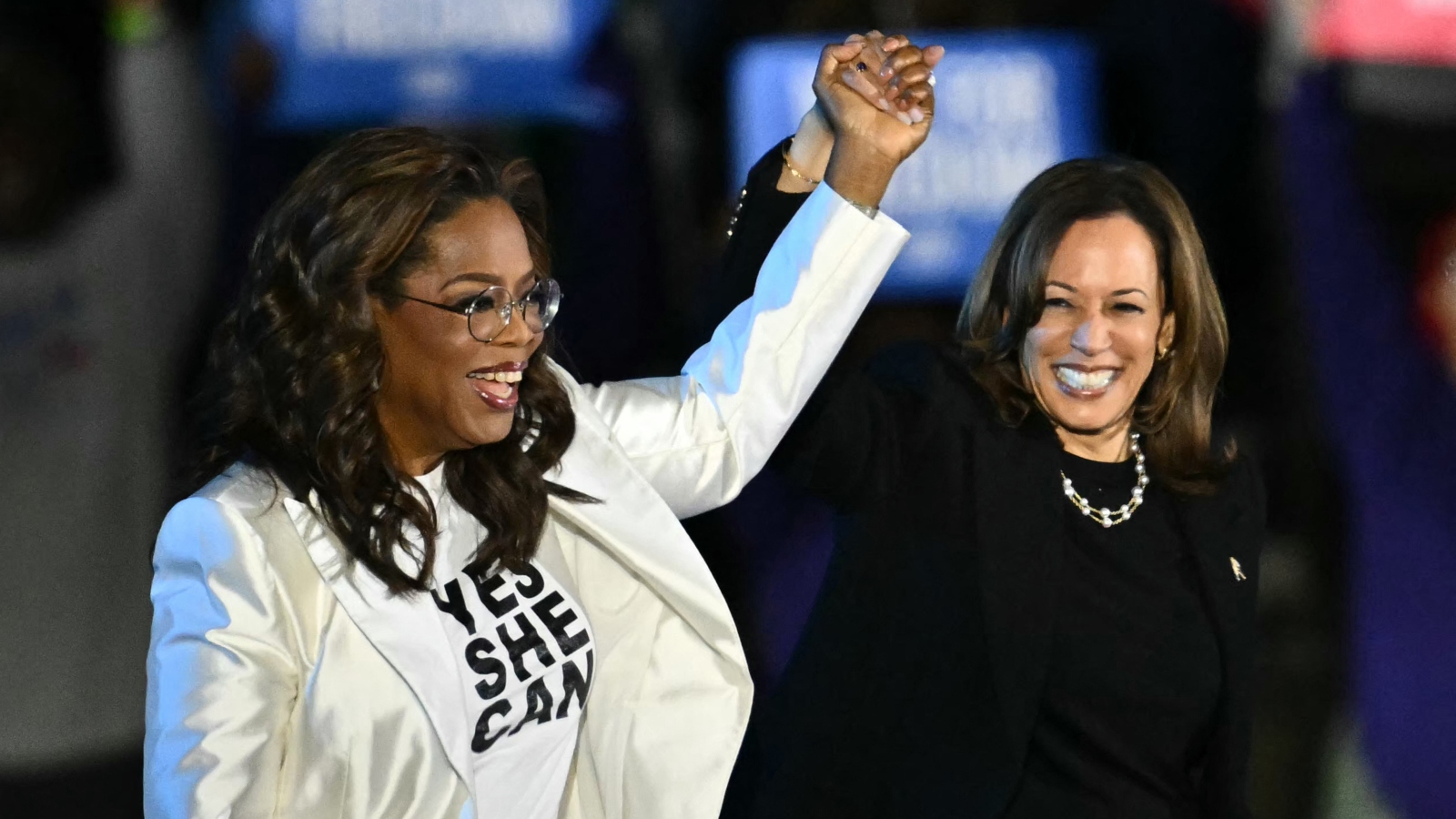
Finger-pointing has erupted over the Kamala Harris campaign’s decision to spend up to $20 million on swing-state concerts Monday night, just hours before the VP’s crushing election loss to Donald Trump.
According to the New York Post, the spending has sparked concerns that everyday staff and vendors may not get paid, as reports indicate the campaign is in debt by the same amount. If they get stiffed, it’s likely that Harris’ campaign could face legal action, especially from vendors who want what’s owed them.
Members of the defeated Harris team told The Post that the concerts had a damaging impact on the campaign’s finances, and this was no secret. One planned performance by ’90s alt-rock icon Alanis Morissette was even canceled to save money.
The seven swing-state concerts held on election eve featured performances by Jon Bon Jovi in Detroit, Christina Aguilera in Las Vegas, Katy Perry in Pittsburgh, and Lady Gaga in Philadelphia, with 2 Chainz joining Harris for an eighth concert in Atlanta on November 2, just three days before the election, the outlet said.
Two sources revealed that Stephanie Cutter, a veteran of the Obama campaign, championed the concert concept as a strategy to mobilize lower-propensity voters to the polls.
While the performers volunteered their time and talent, the events still required a significant commitment of manpower and financial resources.
Cutter’s plan was backed by fellow Obama alum David Plouffe, according to one source who spoke to The Post.
Harris brought Cutter and Plouffe onto her campaign shortly after she replaced President Biden at the top of the party’s ticket in July, a move that created internal tensions with the existing Biden campaign team as the newcomers sought to replicate the success of President Obama’s 2008 campaign.
Harris-Walz campaign chairwoman Jen O’Malley Dillon ultimately approved the get-out-the-vote concert plans but has since told colleagues — in response to significant internal criticism — that she was hesitant about the idea and sat on it for weeks, according to one source who spoke to The Post.
If that’s true, another source pointed out, then O’Malley Dillon’s delay led to increased production costs because “putting [concerts] together last minute makes [them] cost twice as much.”
The second source questioned whether campaign operations chief Dana Rosenzweig should have raised internal concerns earlier in the planning process, while a third defended her, arguing that the campaign budget team should have taken on that responsibility, the outlet noted.
“They said they were ‘spending to zero.’ I guess they overshot zero,” the second source quipped.
In the end, the concerts barely made a dent in the news cycle, except for the Philadelphia rally, where Oprah Winfrey captured attention by stating that a Trump victory could mean “we will not have the opportunity to cast a ballot again.”
The following day, voters in each of the seven swing states turned out to elect Donald Trump, the former president and Republican nominee.
“They had huge advance teams for these concerts, like 40-60 people in some cities,” said an insider who told The Post they have concerns about the financial impact this will have on those who worked for Harris’ campaign.
“I’m sure vendors will start to get upset soon,” the source added, noting that staff payments do not seem to be impacted so far, even as reimbursements are still pending.
In the week leading up to Election Day, as campaign leaders realized that nearly all of their more than $1 billion war chest had been spent, efforts were made to scale back concert costs, noted The Post. These events, originally expected to cost between $15 million and $20 million, in some cases faced budget overruns.
“They definitely knew the budget crunch at the end because they cut talent from some cities because of cost,” the source said, noting that Morrisette’s show was canceled only two days before it was scheduled to take place.